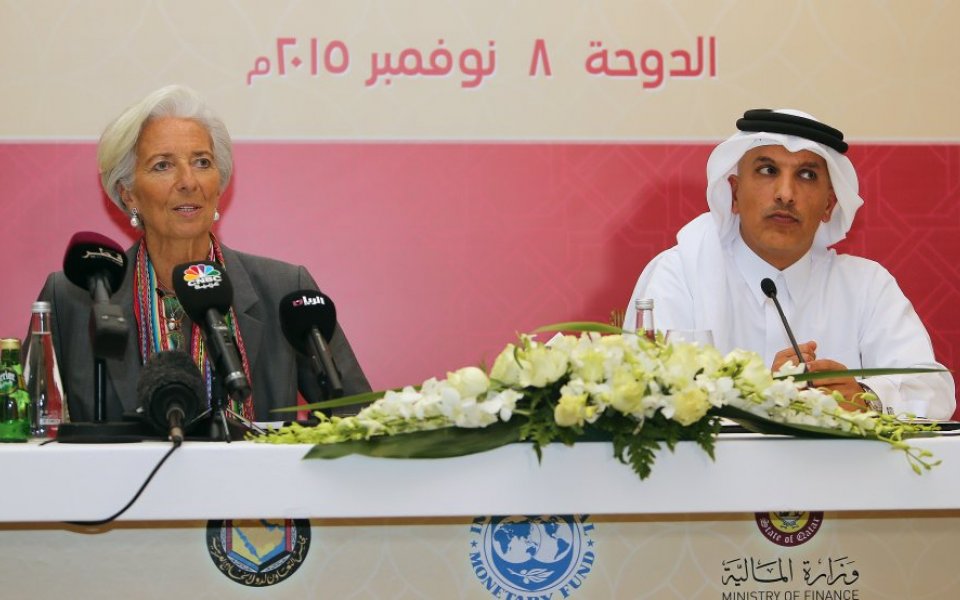IMF boss Christine Lagarde tells Gulf states to improve public finances

Gulf Arab oil states have been given a stark warning to get their government finances under control.
At a meeting with finance ministers and central bank governors of the six-nation Gulf Cooperation Council (GCC), International Monetary Fund (IMF) chief Christine Lagarde said governments would have to adapt as economic growth slowed and export revenues stooped in response to cheaper oil.
Highlighting the impact of low oil prices on the GCC economies, she said export revenues are expected to be $275bn (£182bn) lower in 2015 than in 2014.
“The GCC countries face the challenge of lower oil prices from a position of strength. Prudent policies over the past decade have enabled them to build up financial buffers which avoid the need for a sudden or disruptive adjustment in fiscal policy,” Lagarde said at the meeting in Qatar.
“Nevertheless, with low oil prices expected to persist for a number of years, all GCC countries need to undertake some degree of fiscal adjustment, although the size and urgency of this adjustment varies across countries. Well-planned fiscal consolidation strategies need to be put in place as soon as possible and communicated so that people understand how the adjustment will take place.”
While saying that some reforms would be country specific, she warned that most countries would need to keep a lid on their public sector wage bill.
The GCC is comprised of Bahrain, Kuwait, Oman, Qatar, Saudi Arabia and the United Arab Emirates.
The IMF expects growth across the GCC to slow to 2.7 per cent in 2016 from 3.4 per cent in 2014.